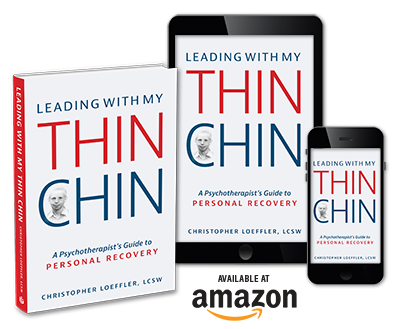About Victim Recovery
Life is not a dress rehearsal.
You will experience yourself differently, successfully. We create movement and momentum.
Are you a reluctant victim?
Over my 34 years as a therapist (11 at Forays), I have gradually been led to call negative storylines victim stories. This is because when we realize our storyline is negative – stemming from early beliefs about ourselves and the recognition that we’ve lived our lives as a result of those beliefs – the chances are that we’ve been victimized. But “victim” and “victimized” are loaded words in our rugged society. Freighted with negative connotations. This results in many people arriving in therapy with symptoms but rarely daring to pronounce themselves victims. Most are what I might call reluctant victims.
But who wants to be labeled a victim in our “Just do it” day and age? Nobody. I’m “stuck” because I’m caught between disclosing the truth that I have suffered victimization and my desired social image as a stand-up person, an adult who has it all together. How many people have bought into this American ethos around victimization as something to get past as fast as possible, lest it become virulent, a lasting weakness? As if it’s shameful to admit shame. The real issue is vulnerability, our human capacity to own up to our failings, wounds, and losses as the paradoxical means of both healing and growing. The paradox lies in there being no taming the pain without naming the wound.

Are you ready to walk the walk and talk the talk?
Healing has to start with facing the “stuckness” and fear of exposure, admitting the vulnerability. Sometimes it must be the therapist who will venture the name, encourage the coming out, and explain the process ahead, gently but forthrightly. Then the process can unfold.
At first the victim identifies the injury, the wound; when it occurred, who the perpetrator was. He allows the emergence of long-buried feelings. He recognizes the behaviors and choices that have resulted from acting out those feelings. Once his story is pieced together, he honors the courage it took his victim self to withstand and then to transform the abuse into words.
Sometimes the victimization (being taken advantage of) is abuse (being hurt) and needs to be worked through again and again. But victimization can be healed. It’s a process. In therapy, we can see the light approaching through the tunnel. Victims often fear it’s a train. It doesn’t have to be. It can be the dawning recognition that what happened in the past stained us, marked us, changed us – but that the past, in turn, can be transformed.

Moving into Survivorhood
As she advances into survivorhood, now so much more self-aware and finally capable of self-empathy, the recovering victim will be increasingly willing, able, and eager to share her story. She will be selective. Determination will replace shame. Momentum will build. Sharing will boost confidence in her survivor self and allow her story to evolve, soften, resonate – becoming more and more nuanced, more coherent, making more sense. No longer denied or fragmented, the past will become integrated as just part, not all, of her life.
The world is populated with survivors. We’re all survivors to some extent. Perhaps the same tools (denial can be a tool) that allowed us to survive will continue to assure our sanity and our safety. But maybe not. There are countless victims who discount, deny, or minimize their victimization, and so carry the scars and act out the resulting behaviors. They believe they’ve survived. They’re alive. They’ve endured.
Maybe we’re talking here about quality of life. And good quality of life probably is best attained through the success of overcoming our past wounds, and finding or achieving loving connections. With our self and with other people.

Advancing into Advocacy
Finally, if they choose to persevere, share, and incorporate their victim story as just part of their lives, recovering victims-turned-survivors will often find themselves motivated to become an advocate. For themselves and for others. Others will benefit from their new-found valor, enthusiasm, and hard-earned wisdom. They will find a cause beyond themselves to which to dedicate their lives. Energies formerly used to block the truth and protect the secrets are now available and can be directed outward toward supporting others.
Advocates are “do-gooders” who have found a cause larger than or outside of themselves. I suspect we all possess the power of advocacy, the roots of activism, within us. But, of course, most of us believe that we have to give primacy to ourselves, our own development, and that of our tribe-family. That’s the logic of most societies, but is it unavoidably the truth? Not necessarily. Families spawn us, life molds us.
Advocacy is to recovery as wisdom is to maturation. The two likely go together since the wise person knows that no one escapes the vicissitudes of life. The advocate learns to convert pain and shame into lessons that help others as well as themselves. Perhaps all of us will find ourselves, consciously or not, at one time or another in our lives, at some stage of recovery. Advocacy will always be needed.

612 Washington Street, Suite 105, Denver, Colorado 80203 | 303-936-9946
